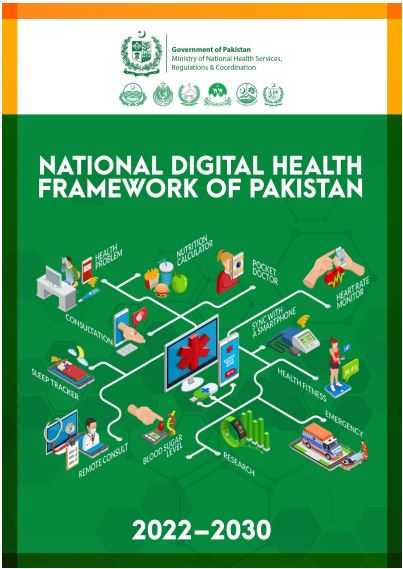Posted on 2023-11-15

According to WHO Global Strategy on Digital Health 2020-2025, digital health is defined as “The field of knowledge and practice associated with development and use of digital technologies to improve health”. Digital health should become an integral part of health priorities and benefit people in a way that is ethical, safe, reliable, equitable, and sustainable. It must be developed with accessibility, scalability, replicability, and Interoperability with data security, privacy, and confidentiality in mind. The latest annual health report by the Organization for Economic Cooperation and Development (OECD) titled “Health a Glance 2023”, has recognized digital health as an “emerging health determinant”, highlighting its growing significance in shaping individual and population health outcomes. It basically means that digital transformation in a healthcare system is not recognized as a social determinant of health. “The report notes that digital tools and the use of health data are transforming “how health services are delivered, how public health is protected, how chronic conditions are managed and prevented”. This pivotal development underscores the need for accelerated digital transformation within the healthcare system worldwide.
Key Points
-
The increasing adoption of electronic health records and telemedicine is transforming healthcare delivery.
-
Many healthcare settings still rely on fax machine, indicating the challenges and opportunities that lie ahead in digitizing healthcare,
-
Digital health has potential to improve health outcomes, but scaling up innovations remains a challenge.
-
Investing in digital health strategies could yield significant returns, with potential gains of $ 3 for every $1 invested,
-
Health sector must prioritize digital transformation, driven by robust Governance, legal framework, and cybersecurity measures, to empower individuals, enhance healthcare delivery, and improve population health outcomes. (OECD-2023)
As we embrace the digital era, the healthcare system must prioritize digital transformation to empower individuals, enhance healthcare delivery, and ultimately improve population health outcomes. By harnessing the power of digital health, we can collectively shape a healthier future for everyone.
It adds that movement towards more integrated healthcare is supporting the “responsible” use of Artificial intelligence (AI) and analytics.
The National Digital Health Strategy of Pakistan was formulated through an extensive consultative and review process. The vision of the National Digital Health Framework in Pakistan is to achieve a healthy population by employing digital technology, effectively creating an empowered, people-centered, safe, and value-based health system. The strategy's mission is to ensure availability, integration, and adoption of digital health solutions for an improved and strengthened healthcare delivery system by 2030. The National Digital Health Framework has the following strategic objectives:
1. Promote National Collaboration and Advance the Transfer of Knowledge on Digital Health
2. Advance the Implementation of National Digital Health Strategies
3. Strengthen Governance of Digital Health at National and Provincial Levels
4. Advocate Digital Health based people -Centered Health System 5. Create a National Interoperable Digital Health Ecosystem in Pakistan
National Priorities on Digital Health
1. Communicable Diseases
2. Non-Communicable Diseases
3. Reproductive, Maternal, Child and Adolescent Health
4. Emergencies
5. Health Service Delivery System
6. One Health
7. Education & Environment
The National Digital Health Framework in Pakistan has a detailed strategic action plan presenting the challenges and action points under governance, finance, human resource, research, innovation and health information systems, modern IT technologies, health services, health services delivery, and collaborations. The strategic action plan details the carefully analyzed and anticipated challenges under each heading, and action points are suggested to address each challenge. Based on the strategic action plan, a detailed monitoring and evaluation strategy has been mapped out to track the progress towards achieving the strategic objectives of the strategy stating the timelines, responsible departments, and indicators against each action point.
Mishkat Sante, IT division comprises a team of IT experts who can develop tools and technologies to meet your priorities on Digital Health.
Our services include
- Digitalization of Health System
- HMIS
- Supporting use of Artificial Intelligence
- Health Promotion and Health Information through Mobile Apps, Social Media portal (Departmental/Organizational Websites)
- Electronic Medical Record
- Medical Transcription and ICD-10 Coding
- E Monitoring
- Evidence-based decision making – Executive Dashboard
- Business Intelligence
- Diagnostic & Treatment Registry
- Preg App for antenatal and postnatal care
- Public Address System
- Nurse Call integration with HMIS
- Queue Management System
- Integration of medical equipment with HMIS/PACS
